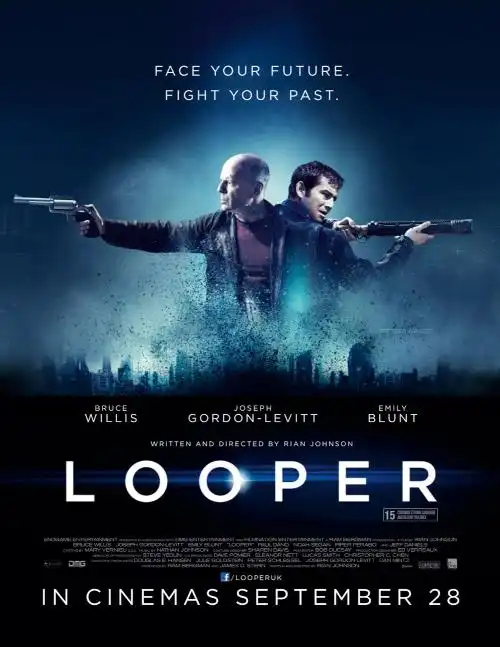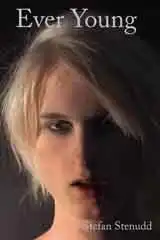Age-old Dilemmas Also Plague the Future Review of Looper (2012), by Stefan Stenudd
As the plot developed in front of my eyes, I was initially confused by the main actor, who looked a lot like Joseph Gordon Levitt, and still not. I thought they had found a look-alike, because the character needed someone of his air and caliber. Only when Bruce Willis' character entered into the story, I realized that it was indeed Joseph Gordon Levitt, made up to have his facial traits. That's so cool of him, and so professional. Many Hollywood actors are neurotic about their looks and profiles, whatever movie they make. Levitt worked hard, in makeup and in his acting, to be a probable younger version of Bruce Willis. He did a good job, too. Not too much, but enough. I bet he had fun all the time. For the film plot, it did wonders, since the two ages of the character meet (sorry about that and other spoilers, if you haven't seen the movie yet). Levitt sacrificed his “persona” to make it happen. As the story progressed and the two generations of the same man deviated also in character, this sacrifice of his got its reward. The dilemma of the film became flesh. The movie does indeed raise some intriguing and alarming questions. Is there a value in being true to oneself, even if that means corruption of the soul? This man morally deteriorates as time passes, and I would say it's just as likely as the opposite. Another eternally complicated question asked by the film is what's worth dying for? Paradise is exposed as a myth and the present world is filled with rewards that mostly seem to go to the greedy. Then, what's worth making the greatest personal sacrifice for? The third impossible question raised in the film is: does the end justify the means? Here the end is the actual future, what it will be if nothing is done. The film's discovery is one of utter clarity: If we allow the end to justify the means, we thereby create the future we want to avoid. Every great thinker of the past would agree. Like so often, I'm reminded of what the ancient Chinese text Tao Te Ching has to say (chapter 29):
Stefan Stenudd November 21, 2012
Click here for more reviews
About CookiesMy Other WebsitesCREATION MYTHSMyths in general and myths of creation in particular.
TAOISMThe wisdom of Taoism and the Tao Te Ching, its ancient source.
LIFE ENERGYAn encyclopedia of life energy concepts around the world.
QI ENERGY EXERCISESQi (also spelled chi or ki) explained, with exercises to increase it.
I CHINGThe ancient Chinese system of divination and free online reading.
TAROTTarot card meanings in divination and a free online spread.
ASTROLOGYThe complete horoscope chart and how to read it.
MY AMAZON PAGE
MY YOUTUBE AIKIDO
MY YOUTUBE ART
MY FACEBOOK
MY INSTAGRAM
STENUDD PÅ SVENSKA
|
 Ever Young
Ever Young